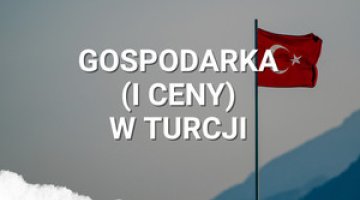A Kurdish attack at the heart of Turkey
On 17th February explosives were detonated targeting a convoy transporting military personnel in the centre of Ankara, claiming the lives of 29 people and leaving 61 injured. The Turkish government blamed the Democratic Union Party (PYD) for the explosion; the party represents Syrian Kurds and Turkey sees it as a branch of the Kurdistan Workers’ Party (PKK). As a consequence of this, the Bashar al-Assad regime was also charged with the bombing since Ankara believes it closely co-operates with Kurds. The PYD leadership and the PKK’s leaders in Turkey denied allegations that their organisations were behind the attack. A smaller Kurdish organisation Kurdistan Freedom Falcons (TAK) has claimed responsibility for the attack and announced that the perpetrator of the attack was a Turkish citizen (the government initially maintained that he was a Syrian Kurd) and threatened further attacks. The US supports the PYD in Syria, and Turkish President Recep Tayyip Erdogan reiterated his appeal for them to break this alliance and to stand by Turkey – which is a member of NATO – and the international anti-terrorist coalition. Washington took an ambivalent position on this issue.
Commentary
- The Turkish government believed that by blaming Syrian Kurds for the bombing it would make the West understand its fight against the PYD (since 13th February the Turkish army has been targeting PYD positions in Syria). However, Ankara’s appeals for the US, which considers the PYD to be an important ally in the fight against Islamic State, have not met with the expected response. Although the White House has not ruled out that the PYD may be responsible for the attack, it has avoided condemning it for the bombing. Furthermore, Washington has called on Turkey to deescalate the conflict. The lack of the anticipated response means that Turkey once again will not succeed in bringing the West round to its own vision of the policy towards Syria – Ankara is demanding that Assad be removed from power, that the Western support for the PYD (which Turkey believes is acting in collusion with Damascus) be withdrawn, and wants support for the anti-regime opposition to be greater.
- The explosion in Ankara testifies to a further escalation of the Turkish-Kurdish conflict which resumed in July 2015 and is now shifting from the south-east of the county, inhabited by Kurds, to the Turkish capital. The place of the attack – a prestigious district of Cankaya and its proximity to the headquarters of the General Staff and the parliament – is of symbolic importance to Turkish statehood. Although the PKK’s leadership, did not claim responsibility for the attack, it announced that fighting would continue. The conflict also has a political dimension – the pro-Kurdish People’s Democratic Party (HDP) refused to sign a joint parliamentary declaration to condemn the attack, pointing to the ongoing conflict in the south-east of Turkey, claiming the lives of the civilian Kurdish population.
- The attack indicates that Turkey’s entanglement in the war in Syria has real implications for its internal situation. This was the fifth bomb detonated in Turkey since June 2015 (previous attacks were attributed to Islamic State). The Syrian conflict is being continued in Turkey and is exacerbating Turkish-Kurdish tensions and the already worrying level of polarisation in society. Confronted with this situation, the Turkish government will still seek to resolve the conflict with the PKK by the use of force. The prospect of further attacks is real, and tougher police measures may be expected; they will be employed to manage social tensions due to the permanent destabilisation of the country.





